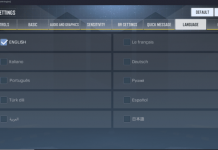Going online has never been more dangerous.
While the internet was originally created to be unregulated, today it’s anything but. Everything you do online is recorded. What specific information is kept and how it’s used is still unclear, but the possibilities are endless. Fortunately, there is a way to fight back. Using a VPN can help you protect your private information and let you browse the internet the way it was meant to be.
Contents
What Is a VPN?
A VPN stands for virtual private network. When a user connects to a VPN, they’re able to encrypt their connection and anonymize their IP address. Here’s an example: If someone in California connects to a VPN server in Australia, they’ll be able to browse the internet as if they were actually in Australia. A website would simply assume they were in Australia based on their IP address, allowing a user to not only browse anonymously but also access all the sites and services that are available in that area.
Most VPNs also offer their own encryption networks. When you connect to a VPN, your information in encapsulated through a secure tunnel. This works by taking your data packets and essentially placing them inside another data packet. ExpressVPN offers military-grade 256-bit encryption on all their servers, so if someone was to spy on your network, all they would see is a random string of numbers and letters.
Other VPN Uses
While a VPN helps secure your connection and lets you browse with peace of mind, there are other benefits to using one. A VPN is useful for people whose ISPs (or internet service providers) throttle or regulate their internet access. Users can use a VPN to bypass internet throttling and in some cases even experience faster speeds and load times.
VPNs also help users access sites and services that may not be available in their country. This is extremely helpful for expats or people traveling to heavily Internet-censored countries. Because you’re able to hide your IP address and take on another in the location of your choice, you’re able to access sites and services that may not have been available before.
Using a VPN to Save Money
You may not be aware, but some websites and services actually charge higher prices based on a user’s location. This little-known tactic is called Dynamic Pricing and has been around for years. By using a VPN, you can save money and hotels, flights, and car rentals by allowing you to check and compare prices in different locations.
In most cases, a single VPN subscription can also be used to protect multiple devices. With ExpressVPN, a single subscription covers three devices simultaneously. Users have to option to install the VPN app on their desktop, laptop or smartphone, as well as their gaming console or router to protect even more devices.
Staying Anonymous on Public WiFi
Public Wifi hotspots may be convenient, but they’re anything but helpful. When you connect to a public network, like those found in most coffee shops and airports, anyone on that same network can easily see what you’re doing. Whether they realize it or not, most people tend to waive their privacy rights as soon as they connect, but with a VPN you can anonymize your connection and thereby secure your connection on an open network.
If you’re concerned about your privacy, a VPN is the best tool you can use to help protect it. Anyone can use one, and they offer immediate protection. Most VPN apps are easy to install and even easier to use.
Don’t sit idly by while your rights are slowly being taken away. Arm yourself with a VPN and take back your internet today












